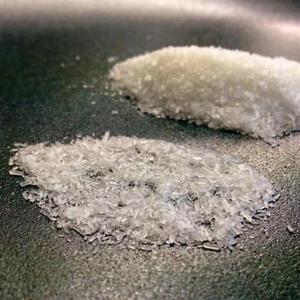Food additives play a vital role in the modern food industry. They not only improve the taste and appearance of food, but also extend the shelf life and increase the nutritional value. Now we will introduce the various applications of food additives and their importance in food processing.

1. Improve the taste and appearance of food
1). Flavoring agents
Flavoring agents are one of the most common food additives used to enhance or change the taste of food. For example, monosodium glutamate can enhance the umami taste of food and make dishes more delicious. In addition, spices and flavors are also widely used in baked goods, candies and beverages, giving them a unique aroma and taste.
2). Pigments
Pigments are used to restore or enhance the color of food to make it more attractive. Natural pigments such as carotene, beet red and safflower yellow are widely used in juices, candies and dairy products. Synthetic pigments also play an important role in beverages, candies and baked goods due to their stability and color diversity.
2. Extend the shelf life
1). Preservatives
Preservatives extend the shelf life of food by inhibiting the growth of microorganisms. Common preservatives include potassium sorbate, sodium benzoate and nitrite. These preservatives are widely used in meat products, jams, juices and baked goods to ensure that the food remains fresh during storage and transportation.
2). Antioxidants
Antioxidants are used to prevent the oxidation of fats and oils in food, thereby extending the shelf life of food. Antioxidants such as vitamin E, vitamin C and BHT (butylated hydroxytoluene) are widely used in meat, nuts, dairy products and baked goods.
3. Improve nutritional value
1). Nutritional enhancers
Nutritional enhancers are used to supplement the nutrients in food to meet the health needs of consumers. For example, the addition of vitamins and minerals can improve the nutritional value of foods such as flour, milk and juice, and help prevent nutritional deficiencies.
2). Fiber additives
Fiber additives such as cellulose, pectin and inulin are widely added to cereals, beverages and dairy products to increase the fiber content of food and promote intestinal health.
4. Improve food processing performance
1). Emulsifiers
Emulsifiers are used to improve the texture and stability of food and keep the oil and water mixture uniform. Common emulsifiers include lecithin, monoglycerides and diglycerides. They are important in bread, cakes, ice cream and salad dressings.
2). Thickeners and stabilizers
Thickeners and stabilizers such as gelatin, agar, pectin and xanthan gum are used to increase the viscosity and stability of food and prevent separation. They are widely used in yogurt, jelly, sauces and beverages.
5. Safety of food additives
Although food additives play a significant role in improving food quality, their safety has always been the focus of consumers. Governments and relevant agencies of various countries have strictly regulated and evaluated the use of food additives to ensure that they are safe when used within the prescribed range.
In general, food additives play an irreplaceable role in the modern food industry. They not only improve the taste and appearance of food, extend the shelf life, and increase the nutritional value, but also improve the processing performance of food. Although food additives should be used with caution, under scientific supervision, they bring more choices and convenience to our diet. In the future, with the development of science and technology and changes in consumer demand, the application of food additives will be more extensive and diversified.

 English
English
 Español
Español
 Português
Português
 русский
русский
 français
français
 日本語
日本語
 Deutsch
Deutsch
 Tiếng Việt
Tiếng Việt
 Italiano
Italiano
 Nederlands
Nederlands
 ไทย
ไทย
 Polski
Polski
 한국어
한국어
 Svenska
Svenska
 magyar
magyar
 Malay
Malay
 বাংলা
বাংলা
 Dansk
Dansk
 Suomi
Suomi
 हिन्दी
हिन्दी
 Pilipino
Pilipino
 Türk
Türk
 Gaeilge
Gaeilge
 عربى
عربى
 Indonesia
Indonesia
 norsk
norsk
 اردو
اردو
 čeština
čeština
 Ελληνικά
Ελληνικά
 Українська
Українська
 فارسی
فارسی
 नेपाली
नेपाली
 Burmese
Burmese
 ລາວ
ລາວ
 Latine
Latine
 Қазақ
Қазақ
 Македонски
Македонски
 Lietuvos
Lietuvos
 Română
Română
 मराठी
मराठी
 Српски
Српски
 Esperanto
Esperanto
 Afrikaans
Afrikaans
 Cymraeg
Cymraeg
 Беларус
Беларус
 Hrvatski
Hrvatski
 Hausa
Hausa
 Монгол хэл
Монгол хэл
 Gàidhlig
Gàidhlig
 O'zbek
O'zbek





